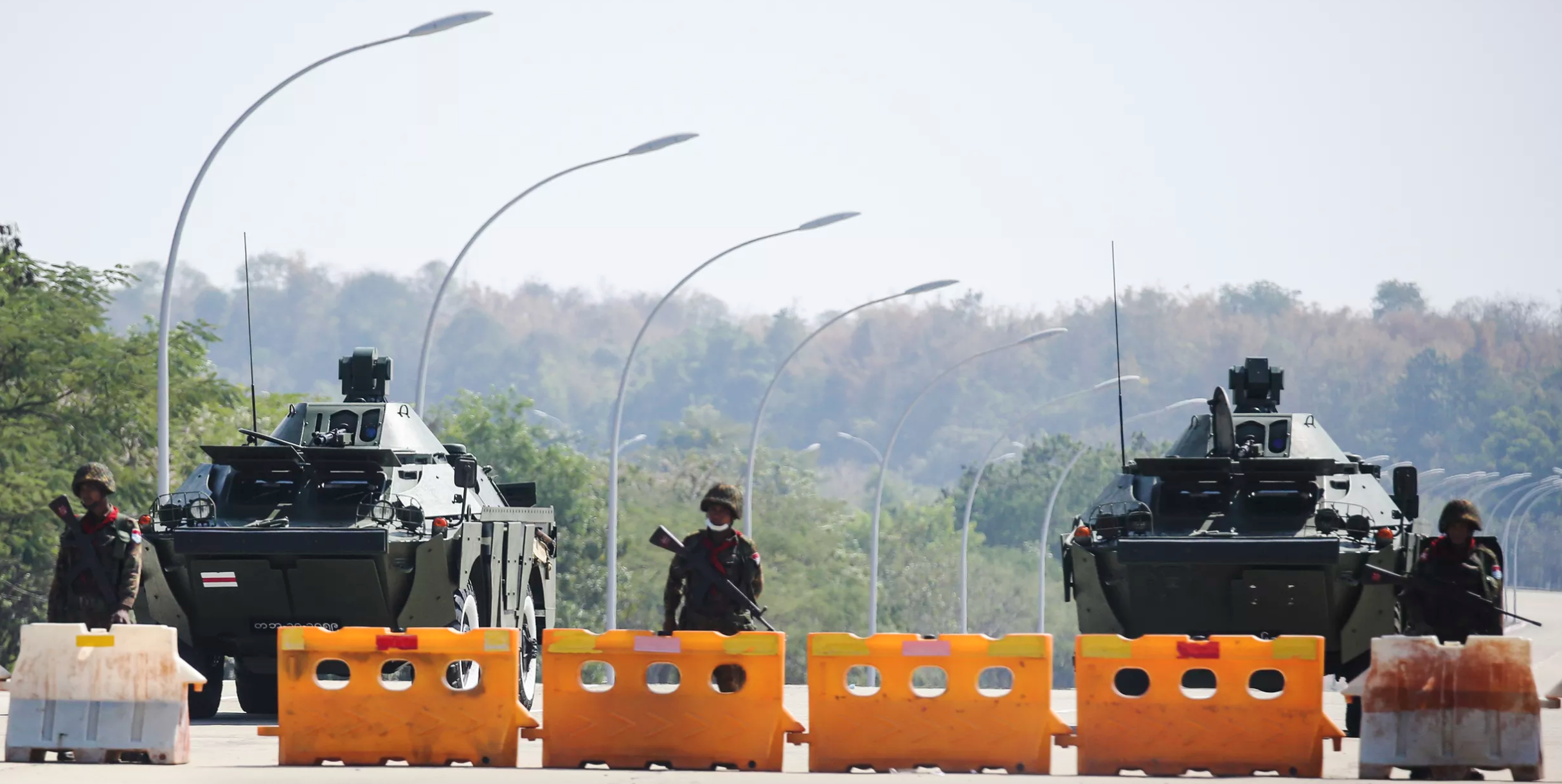As a new Parliament was about to set in, Myanmar’s military has seized power and declared a state of emergency. The coup did not come unexpected, as the armed force have been long complaining about irregularities in the November vote, marked by a new triumph of Aung San Suu Kyi, and had already stirred the spectre of a coup on the 26th of January.
Military forces ruled Myanmar for 50 years before civilian rule returned in 2011 and it still holds a vast constitutional power. Former General Myint Swe, now appointed interim president by the army stated that the military coup that toppled the government of Aung San Suu Kyi was constitutional. The military has promised new free and fair elections in the wake of the Constitution. “Mass protests against electoral fraud have started in many regions of the country”, reads the note released by Burmese television, “in this regard, a state of emergency is declared in accordance with articles 417 and 418 of the Constitution”.
Instead on the NLD Chair Facebook page (verified), an Aung San Suu Kyi’s message appeared, appealing to the people of Myanmar not to accept the coup and to take to the streets. However, the Myanmar army has already repeatedly demonstrated its brutality in responding to demonstrations and protests, and troops are already patrolling the streets of the major cities and communications have been limited. International and domestic TV channels, including the state broadcaster, went off-air as internet and phone services have been disrupted and banks forced to close.
The foreign response was immediate. While China has maintained certain neutrality by identifying itself as a friendly neighbor of Myanmar, which hopes for all the parties to properly handle their differences in safeguard of political and social stability, the United States condemned the coup, asking the military to immediately reverse their actions. A White House exponent stated that “the United States is opposed to any attempt to alter the outcome of the recent elections or to prevent Myanmar’s democratic transition and will take action against those responsible if these steps are not reversed”.
The USA response was quickly backed up by the one of UN Secretary-General Antonio Guterres who defined the coup as “a severe blow to democratic reforms in Burma and consequently, military leaders are called to respect the will of the Burmese people and adhere to democratic standards” and that “any dispute must be resolved through peaceful dialogue”.
Even Europe raised its voice in defence of Aung San Suu Kyi through declaration and tweets by Ursula von der Leyen, the president of the European Council, Charles Michel and the head of the diplomacy, Josep Borrel. Even in Italy the Foreign Ministry also reported concern over the arrests and the interruption of the democratic transition process, stating that San Suu Kyi and the other arrested leaders must be immediately released.
As protestors take the streets, not only in Myanmar, but also in Thailand, where police in full anti-riot gears are moving in to disperse the demonstrators in front of the Myanmar Embassy in Bangkok, we must recall how Myanmar history is one of pressures, civil wars, and profound ethnical tensions. For these reasons, we share with the rest of the world the concern for the current events, hoping for a return to the respect for the Rule of Law and democratic institutions.
Asia Jane Leigh

